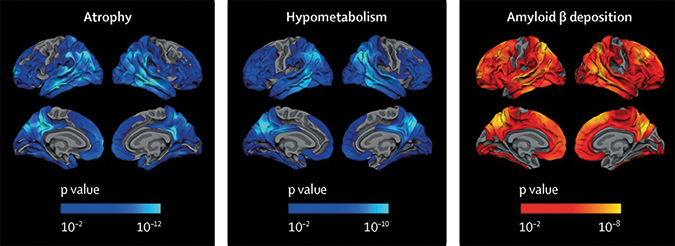
2 July 2020
NEWS RELEASE

A study with CPFT has shown how people with Down syndrome can develop the brain changes associated with Alzheimer’s disease by their forties, with no clinical symptoms to help detect them.
Researchers in Cambridge and Spain collaborated for the first time to investigate the development of Alzheimer’s disease in people with Down syndrome. Their findings have now been published in The Lancet.
Dr Shahid Zaman, CPFT Consultant Psychiatrist and researcher with the Cambridge Intellectual and Developmental Disabilities Research Group worked with Neurologist Dr Juan Fortea and his team at the Sant Pau Memory Unit in Barcelona.
Neuropathology of Alzheimer’s disease occurs several years before the onset of symptoms
Shahid said: “Alzheimer’s disease and its complications are known to be the leading cause of death in adults with Down syndrome. This work confirms the shocking fact that the neuropathology of Alzheimer’s disease occurs several years before the onset of symptoms in patients.”

The researchers found that the cognitive and biochemical changes in Alzheimer’s disease start more than 20 years before clinical symptoms present in people with Down syndrome. In this long preclinical phase, imaging biomarkers change following a predictable sequence, which is surprisingly similar to the way Alzheimer’s disease develops in the general population.
Shahid added: “The order and timing of these changes follows a similar pattern to those described in autosomal dominant Alzheimer’s disease, a very rare hereditary form of the disease caused by mutations in some genes – including the amyloid precursor protein gene. This form also has an early onset, often before the age of 55.”
Earliest changes detected at age 30
The earliest changes detected by the study started in adults with Down syndrome at age 30, and the findings can now inform the development of future clinical trials. Understanding exactly what happens in this preclinical phase is essential to be able to prevent or moderate the progression of Alzheimer’s disease in Down syndrome.
Shahid said: “Thank you to everyone who took part in this research. Clinicians are now a step closer to measuring this silent, pre-symptomatic stage of the disease in people with Down syndrome. Hopefully, this study will help provide outcome measures for preventative clinical trials, which is the next stage we are planning.”
The biomarkers described by this research could help to select therapeutic targets and monitor the response to a potential treatment. Clinical trials to prevent Alzheimer’s disease are essential to reduce mortality for people with Down syndrome, and could prove beneficial for the general population.
This study was supported in the UK by the Medical Research Council, the National Institute for Health Research (NIHR) Cambridge Biomedical Research Centre, the NIHR Collaboration for Leadership in Applied Health Research and Care (CLAHRC) for the East of England (now the NIHR Applied Research Collaboration East of England), the NIHR Cambridge Dementia Biomedical Research Unit, the Down Syndrome Association, and the Health Foundation.
Funding and support in Spain was provided by the Fondo de Investigaciones Sanitario, Instituto de Salud Carlos III, and the CIBERNED programme, partly jointly funded by the EU European Regional Development Fund.
About Cambridgeshire and Peterborough NHS Foundation Trust
Cambridgeshire and Peterborough NHS Foundation Trust (CPFT) is a health and social care organisation, providing integrated community, mental health and learning disability services, across Cambridgeshire and Peterborough, and children’s community services in Peterborough.
We support around 100,000 people each year and employ more than 3,700 staff. Our largest bases are at the Cavell Centre, Peterborough, and Fulbourn Hospital, Cambridge, but our staff are based in over 90 locations. We are a University of Cambridge Teaching Trust and member of Cambridge University Health Partners, working together with the University of Cambridge Clinical School. Together with global, national and local partners we conduct high-quality and ground-breaking research into mental and physical health and support innovation to improve patient care.
About the Cambridge Intellectual and Developmental Disabilities Research Group (CIDDRG)
Led by Professor Tony Holland at the University of Cambridge, the CIDDRG aims to undertake research in the field of intellectual and other developmental disabilities that will inform the treatment and support of people with disabilities themselves and also relevant policy and practice. They conduct interdisciplinary and collaborative research and ensure that the findings are disseminated in ways that can be used to bring about change.
They also support students from a variety of disciplines to undertake research in intellectual and other developmental disabilities in order to contribute to the development of relevant academic expertise for the future.
Through established local, national, and international partnerships CIDDRG promotes best practice in organisations relating to intellectual and other developmental disabilities, drawing on findings from sound research and on the principles of justice and non-discrimination and the promotion of rights, independence, choice and inclusion.
For more information please contact:
Laura Marshall
Research and Development Communications Manager
E laura.marshall@cpft.nhs.uk
T 07932 662430
